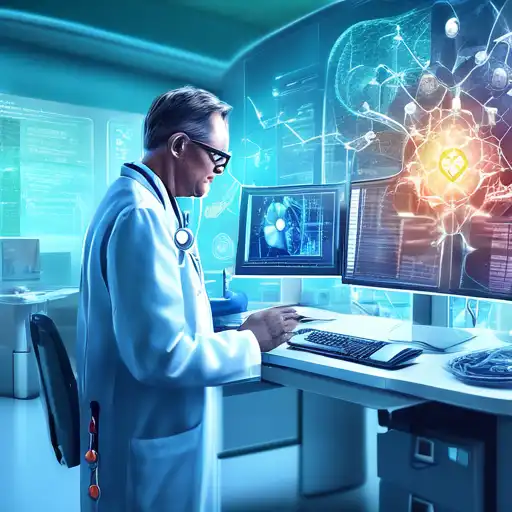The Transformative Impact of Data Science on Healthcare
In recent years, data science has emerged as a revolutionary force in healthcare, offering unprecedented opportunities to improve patient outcomes, streamline operations, and reduce costs. By harnessing the power of big data, machine learning, and artificial intelligence, healthcare providers can now predict epidemics, cure diseases, and improve quality of life in ways that were previously unimaginable.
Predictive Analytics in Patient Care
One of the most significant contributions of data science to healthcare is the development of predictive analytics. This technology enables healthcare professionals to identify patients at high risk of chronic diseases, such as diabetes or heart disease, before they manifest. By analyzing patterns in historical and real-time data, predictive models can forecast health trends and suggest preventive measures, significantly improving patient care.
Enhancing Drug Development
Data science is also transforming the pharmaceutical industry by accelerating the drug development process. Through the analysis of vast datasets, researchers can identify potential drug candidates more efficiently, reducing the time and cost associated with bringing new medications to market. This not only speeds up the availability of life-saving drugs but also makes the development process more cost-effective.
Personalized Medicine
Another area where data science is making a profound impact is in the field of personalized medicine. By analyzing a patient's genetic makeup, lifestyle, and environmental factors, healthcare providers can tailor treatments to the individual's specific needs. This approach not only improves the efficacy of treatments but also minimizes the risk of adverse side effects.
Operational Efficiency
Beyond patient care, data science is helping healthcare organizations improve operational efficiency. From optimizing staff schedules to managing inventory, data-driven insights enable hospitals and clinics to operate more smoothly, ensuring that resources are used effectively and that patients receive timely care.
Challenges and Opportunities
Despite its many benefits, the integration of data science into healthcare is not without challenges. Issues such as data privacy, security, and the need for skilled professionals must be addressed to fully realize the potential of this technology. However, with continued investment and innovation, the future of healthcare looks brighter than ever.
In conclusion, data science is revolutionizing healthcare by enabling predictive analytics, enhancing drug development, personalizing medicine, and improving operational efficiency. As this field continues to evolve, it promises to bring about even more groundbreaking changes, making healthcare more accessible, affordable, and effective for everyone.
